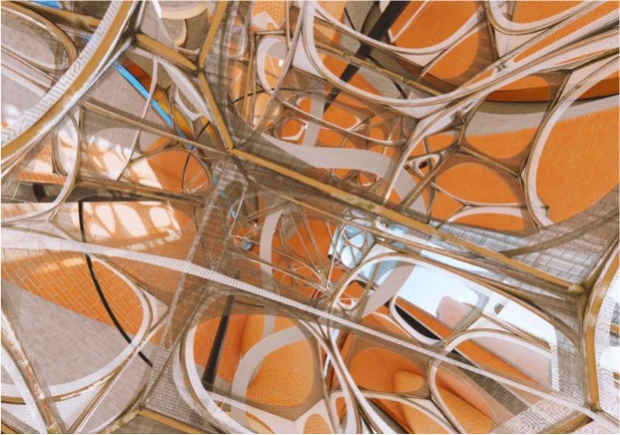Two EBD degrees--a one-year MEBD and a two-year MSD-EBD--train architects in the new skills and knowledge required for environmental design and especially in the design techniques with which those skills must be integrated into the practice of architecture. The course of study includes coursework on building performance simulation, integrated building design, building envelopes and systems, lighting, daylighting, and the theory and practice of environmental design. Coursework is complemented and extended by a Performance Design Workshop and then explored in a Bio-Climactic Studio and an EBD Research Studio.
The challenge to architects is to operate at scales greater and smaller than that of the building, requiring the understanding of the chemistry of materials as well as consideration of the impact of whole populations of buildings on their local, regional, and global ecosystems.
With the renewed urgency of environmental issues—from global climate change and resource shortages to “net zero” design—architects are faced with demands for new kinds of services that require new approaches to design.
"EBD gave me the tools to understand the ways that energy shapes architecture, and vice versa. It enabled me to speak in terms of building science, HVAC, electricity, and performance simulation, while still in the realm of design, human behavior and aesthetics. On a conceptual level, the content from Ecology, Technology, & Design, especially the focus on systems thinking helped me understand the idea of design leverage - places to intervene in a system to affect change."
Jose Barria ‘17, Entròpica
Our Remarkable Team of Experts
The Department of Architecture at Penn has gathered a remarkable team of experts to teach in the program. The program connects to faculty and related research in energy and environmental studies at Penn to advance architects’ skills in this crucial area of design and technology.
Faculty research
EBD faculty and students conduct research and consulting projects in a number of related research units at Penn. the Center for Environmental Building + Design, the Thermal Architecture Lab, and the Kleinman Center for Energy Policy.
Alumni of the EBD Programs
Students in the EBD programs gain new skills and find new job opportunities after they graduate. About half of the alumni work in architecture practices, mostly in specialized sustainability or research units, but also as designers and project architects. Another 40% work in consulting practices, especially those focused on early design phases, though others have found positions in closely related fields. Finally, a number of students continue on to pursue PhD degrees so they can teach or conduct research.
Contact us for more information
For questions about the program, life at the school, or anything else you can contact the Student Ambassador, a current student, or the Faculty Director of the program.
Student Ambassadors
Navya Pandey
Hong Wei
Faculty
Professor William Braham, Director
Professor Dorit Aviv


